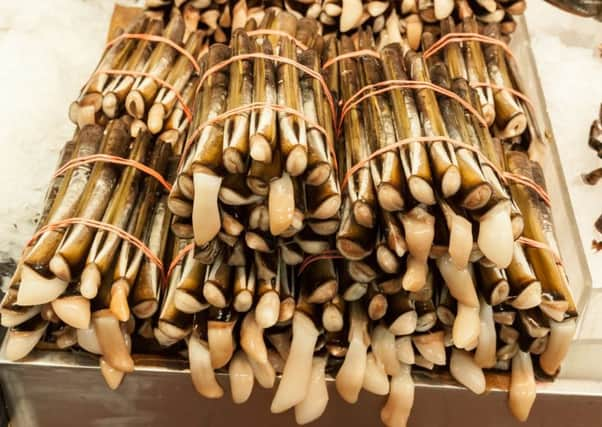Trial fishery could lead to legalisation of electro-fishing


Electro-fishing works by sending electrodes to shock razor fish in the seabed, causing them to rise out of their burrows, where they can be collected by divers.
With the clams, also known as spoots, in high demand in the Far East, fisherman can command up to £10 a kilo for the delicacies. However, the race to supply overseas markets has led to a spike in illegal electro-fishing in recent years, leading to fears that the razor fish could be killed off in areas that are fished intensively.
Advertisement
Hide AdAdvertisement
Hide AdThe government now believes that electo-fishing could serve as a “sustainable and safe” way of harvesting the clams and has greenlit a scientific trial, with the location yet to be determined.
It follows a government consultation which identified a “clear and consistent” concerns over electo-fishing’s potential impact on the marine ecosystem. The report, published yesterday, also acknowledged that supporters of the method regard it as “very selective,” with “little impact” on seabeds.
A trial razor clam electrofishery will be established to carry out further scientific studies. The catches reported by approved vessels will be reported, allowing experts to assess populations.
Rural economy secretary Fergus Ewing said: “Responses to our consultation and previous research suggests that, where properly applied, electro-fishing can be a sustainable and safe method of harvesting razor clams in a way that is less intrusive than traditional methods like dredging.
“We will now undertake scientific trials in specified areas to ensure we fully understand the potential of the industry, and how we best to access the economic possibilities in this area.”
However, Mark Ruskell MSP, the Scottish Greens’ environment spokesperson, said any move away from dredging to electro-fishing “won’t allow our precious marine environment to recover.”
The Community of Arran Seabed Trust has questioned the government’s political will and capacity to enforce any management scheme. It warned legalisation would exact “a high price for future generations of fishermen and the public.”
In 2011, diver Graeme Mackie drowned while electro-fishing in the Firth of Forth. Dunfermline Sheriff Court heard that there was no evidence that the electric current directly caused his death. Skipper Ronald MacNeil was ordered to carry out 300 hours of unpaid work after admitting safety failings.